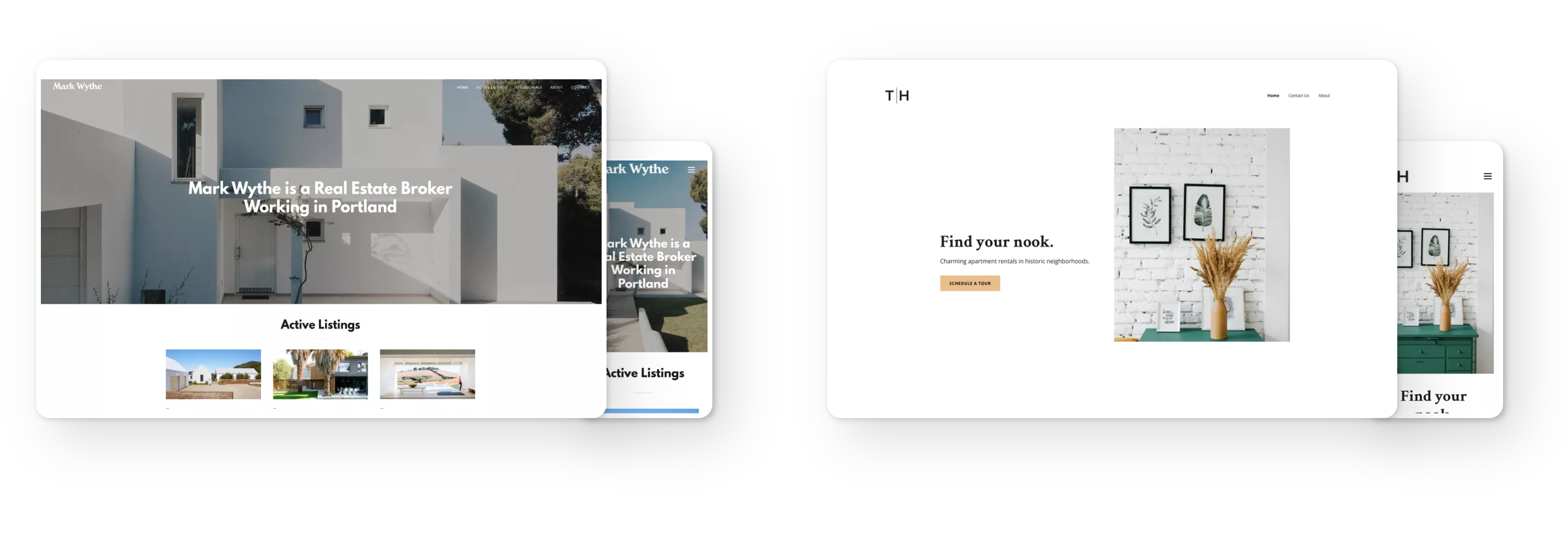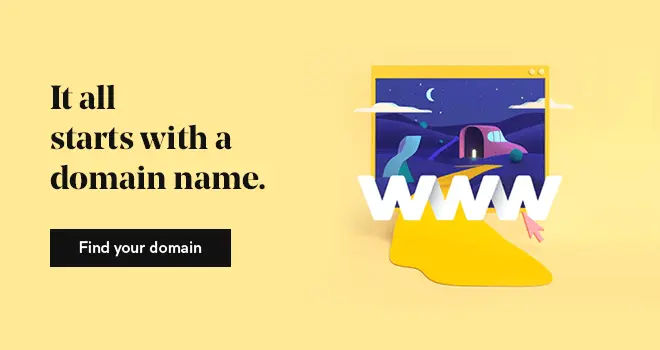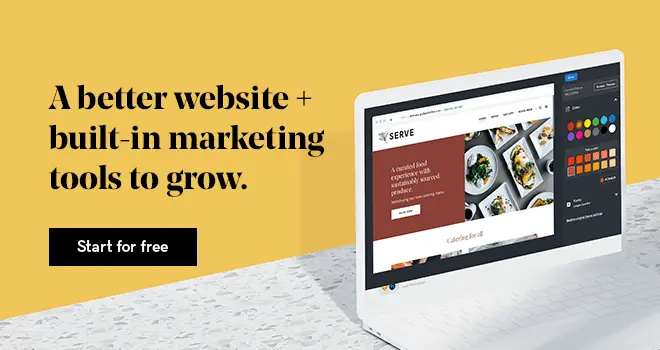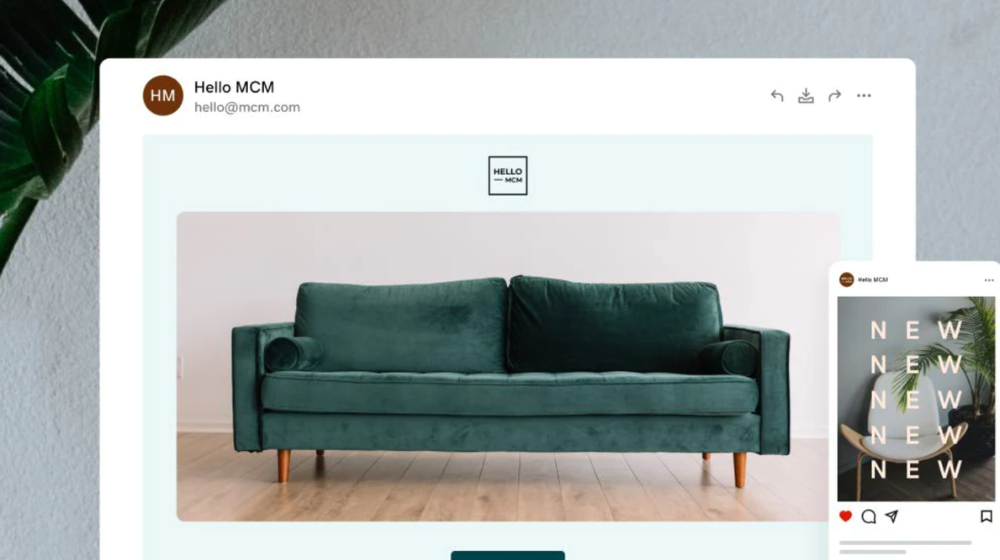Real estate websites are like shopfronts for real estate businesses. They must have the right elements to draw clients in, making clients feel the business is trustworthy and resourceful. This is why paying special attention to the real estate agents website design is so important. Effective and great real estate websites can impact how your target audience perceives your brand. It entices them to navigate through every webpage with curiosity.
The best real estate websites allow your customers to look for their dream property seamlessly, which means new business for you!
In this article, we take a look at Real Estate web design. Let's sieve out some important tips and tricks to help you build a powerful website with impeccable design while achieving your goals!
Read on if you’re looking for tips on user-friendly web design to create a brand new real estate website or spruce up your existing pages. These 9 design strategies might give you a competitive edge that you didn’t expect.
1. Use a real estate website design template
There is no need to start from scratch. There are plenty of website templates that you can choose from to make your design journey a breeze. A template is like a “skin” for your website. The builder comprises a comprehensive list of layouts, display features and colours relevant to current real estate trends to create the web pages. All you need to do is to upload the relevant content such as images, marketing copies and videos.
The chosen template serves as the foundation of your entire website, so choose wisely and make sure it is in sync with the brand image that you wish to portray to your potential real estate clients.
If you choose to use GoDaddy's Website Builder, you'll have access to many real estate web design templates, which can save you time and effort in building one from scratch.

Having website designs that reflect your brand image is essential for conveying a consistent brand message to your target audience.
Still feeling hesitant? You can now build a real estate website using AI. With GoDaddy Airo, building a website just got easier. Learn how you can do so by reading the following article:
2. Adopt a site design strategy
If you’re selling ultra-high-end properties, a minimalist web-design strategy might work better than a colourful one. This is because the minimalist look portrays a certain level of sophistication and confidence. As such, this might encourage clients to trust you with their multimillion-dollar transactions.
Typically, the minimalist style uses a lot of blank spaces, clean typography and scarce text. Check out Quaive Studio’s website, it’s a great example of a minimalist website.
Another popular look is the modern design. It is relatively safe to adopt and is known to produce amazing websites for businesses of any scale. Brands like Samsung use the modern look because it emphasizes clean and simple elements such as plenty of white space, a strong but limited colour palette and the use of a hero image that represents the brand.
Love more colours but not sure if they’ll work? Before you splash colours on your site, take note that they can completely change the look and feel of a website and dictate the mood and tone of the page. Bold use of colours is a double-edge sword -- it can increase brand recognition and entice browsers to your site but it can also stir their emotions in either direction.
There is no right or wrong to this but whichever strategy you choose, the final real estate agents website design should reflect your brand personality.
Editor’s Note: Want to learn effective ways to get more customers? Read this article for four brilliant tips.

3. Use only high-quality images
As the saying goes, “a picture tells a thousand words". Better still, high-quality images help to convert leads and increase profitability.
The images you use are representations of your brand, products and services. Especially for a real estate website, the property photos serve as first impressions for the homes you’re marketing. Naturally, better real estate photos are more likely to draw more opportunities for customer engagement while poorer ones are going to put a dent in your business.
However, note that large images (with big file sizes) can slow down the loading speed of your website. Some users might even leave your site before viewing what you have to offer! Therefore, make sure to compress and resize the photos to a file size of no more than one megabyte to optimise page loading speed.
4. Keep site navigation simple
One main feature to consider when developing a real estate agents website design is the site navigation. When the navigation is well designed, you’ll improve user experience and lead clients systematically to take your desired action.
Let’s be honest, good content and pretty aesthetics are not enough to keep your potential clients on your site. If they can’t easily navigate through the website to find what they want, they are bound to feel frustrated and leave.
As a rule of thumb, always design your website in such a way that clients can locate the page they want in just three clicks.
5. Website must be mobile-friendly
Do you know that mobile users account for nearly half of the global web traffic? If your real estate website is not mobile-friendly, you could be missing out on half of your target audience!
While designing your website, consider how desktop users and mobile users navigate through your website to find everything they want. Some web features may work for desktops but are not so impressive for mobile users. For example, Flash and pop-ups don’t work well with mobile devices. Too many images on a website can also disrupt mobile viewing.
Best real estate websites need to be mobile-friendly because mobile users account for nearly 50% of global web traffic.
6. Include a search bar and filter option

Including a search bar and filter option in your real estate agents website design is a must.
Serious home buyers and sellers will be interested to browse properties that match their requirements. By incorporating these features, you’ll allow these potential clients to shortlist their preferred properties quickly and conveniently without having to scroll through hundreds of listings.
Search bar and filter options are incredibly important to improve the user experience on a real estate website and improve conversion rate. Think of it this way, if clients can find what they want quickly, it also means that you’re one step closer to sealing a deal.
7. Publish customer reviews
Don’t be shy, go ahead and publish your customer testimonials on your website. It is not just because you deserve a pad on the shoulder but also your potential clients need to see them before they’ll even want to work with you.
Survey has found that 79% of consumers trust the reviews they read online as much as personal recommendations and as many as 62% revealed that they will not engage brands that engage in review censorship or use fake reviews.
By publishing customer reviews, you’re likely to gain more confidence from potential clients and encourage them to connect with you. More customer engagement ultimately leads to higher profitability.
Editor’s note: If you run a real estate business but don’t have a business website, you can build it yourself with Website Builder – no prior site design experience required.
8. Adding a human touch
The real estate business is closely knitted with personalised services that are based on trust and professionalism. People want to know that there is a genuine person behind the website. A person who can truly deliver the promises written on the online pages.
With this in mind, consider adding a human touch to your website to radiate a friendly vibe. It can be as simple as adding photos of yourself or your agents! You can also include direct contact to service staff or displaying user-generated content like testimonials from clients.
9. Offer online appointment booking
Offer an option for potential clients to make an appointment with you at any time of the day. Many people have busy schedules in the day. Therefore, they might leave personal tasks like searching for a new home to the end of the day or even wee hours of the morning.
Offering an online appointment booking option on your real estate website means potential clients who can’t reach you by phone, can still schedule a viewing session or a callback. This way, you’ll always be able to keep track of your leads and offer more targeted services that’ll help you close the deal.
Use these tips to drive traffic
Implementing these nine real estate agents website design tips and ideas are essential for driving traffic and improving customer engagement on your website. Whether you intend to put together an affordable agent website yourself or hire web designers to do it, rest assured that these design tips are easy to incorporate and don’t require a huge budget.
Editor's Note: This article was first published on December 23, 2021 and updated on January 3, 2025.









